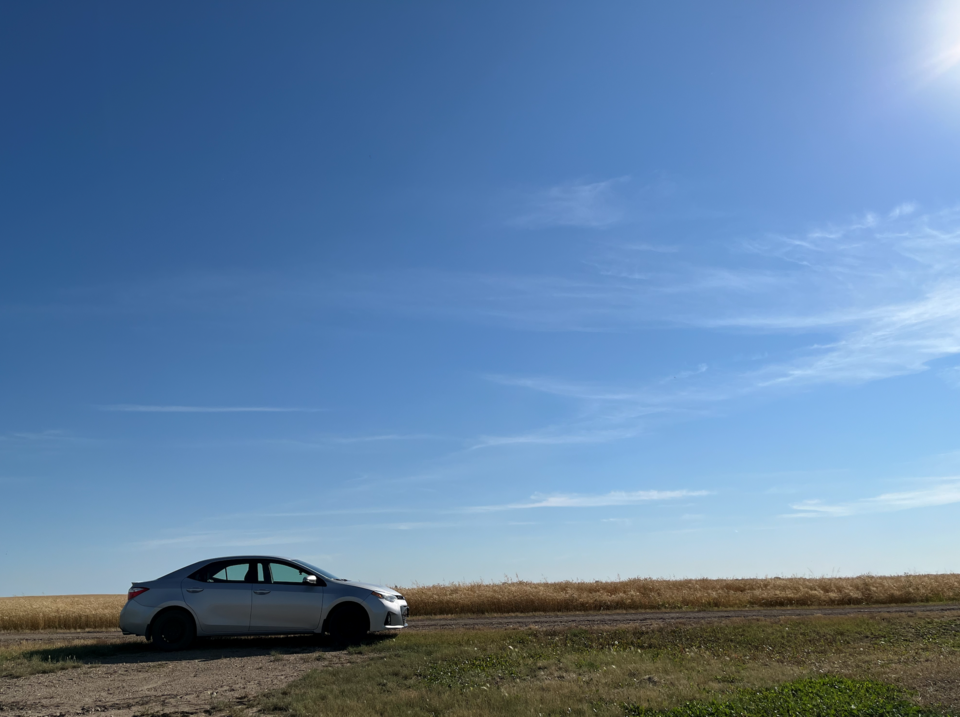As a young, not-yet-educated intern journalist in the fair city of Prince Albert, Sask., some 15 or so years ago, I found myself on assignment with a member of the local-media competition.
As is often the case at press conferences, the two of us ended up standing around waiting for someone to approach a microphone.
In the interest of making small talk, I asked my fellow reporter, a British Columbian by birth and recent arrival to Sask., how he was liking Prince Albert.
He looked at me as if I had asked what colour the sky was.
“Are you serious?” he said.
“It’s a ****ing hole.”
And that was the end of the conversation, as far as I can recall.
His arrogant impression of my “home” city stuck with me—mostly because it was so accurate.
Having never lived anywhere else, I didn’t have much to compare it to—though deep down I knew it was a hole.
But the certainty with which he dumped on my entire known existence made me wonder what the hell was so great about B.C.
As fate would have it, a few short years later I would get a chance to learn for myself. Though Whistler, and B.C., were not on my radar when former editor Clare Ogilvie floated me the opportunity to join the Pique team, it was too good to pass up.
As a different former editor and mentor phrased it, “dude—it’s Whistler.”
You can guess the rest. I made the leap. Climbed out of the hole, and joined all the enlightened physical specimens inhabiting breathtaking Whistler, B.C.
I didn’t look, think, or act like them, but surely I could fake it. And if I faked it long enough, maybe I would make it, too.
And it didn’t take long for me to see what that other reporter (whose name I no longer recall… Ruddiger or something) was on about.
The tagline is beautiful British Columbia for a reason, and Whistler might well be the crown jewel.
And in each of my rare visits back to Saskatchewan in the 10 years since, I’ve found little to entice me back there on a permanent basis.
Cracked roads and cold, drawn-out winters. Flat, expansive drives with nothing to see. Run-amok rumour mills because there’s just not much else to do. Rampant alcoholism and backwards-ass politics.
I had convinced myself whatshisname was right; that my home was an unenticing hole.
I was wrong. Lying. Telling stories to myself, like we all are, every day, about everything.
But then, it’s not always easy to see beyond the gleaming refractions of the Bubble.
So leaving my work computer at my desk in Pique’s Function Junction office late last month, I felt a sick sense of melancholic longing.
For years now, the computer has rarely left my side. It was a bit like leaving behind a child, or a last goodbye to an old friend.
Melodramatic, to be sure, and more likely a symptom of some sick, professional Stockholm Syndrome than a valid emotional connection.
It had been 10 months since I last missed a Pique production day, and my brain was wrought with the layered effects of such a marathon stretch.
They call Whistler a bubble—the Bubble—for a reason. Nearly everything here happens in a vacuum. And if you stay too long inside for any one stretch you begin to lose the forest for the trees.
After a time, every minor transgression or issue threatens to compound into something catastrophic. A decision made, or not, by council; muddled operations both on-mountain and off; a general lack of transparency and communication from every organization in town; a stranger walking too slow in front of you.
In that downtrodden mental state, every reader response can be read as a personal affront; every email a direct attack.
There I was, living comfortably in the most beautiful place on Earth, completely miserable.
It makes you wonder if maybe it’s not the place that dictates our prosperity and personal happiness.
Maybe it is just us, and the stories we tell ourselves.
And maybe my home isn’t such a hole after all.
That was the mindset I loaded into my car late last month, with a couple travel bags and a puppy prone to carsickness.
And this time—for the first time in 10 years—I saw things much differently.
Wide open skies in every direction made the Whistler Valley feel almost claustrophobic in comparison. Barren provincial highways without a sniff of gridlock made the Sea to Sky look like a daily death race to nowhere. Catching up with friends and family reminded me of who I really am, and where I came from.
I’m grateful for the time I got to spend there, and for the first time in 10 years, I could see myself moving back eventually.
I don’t know when. Whistler is still my home, even if I still don’t feel like I really belong after all these years.
It’s just comforting to know the world carries on outside our perfect little bubble on the edge of the world—and reassuring to know our stories won’t end when it finally breaks.
Whatever stories we may be telling ourselves at the time.




